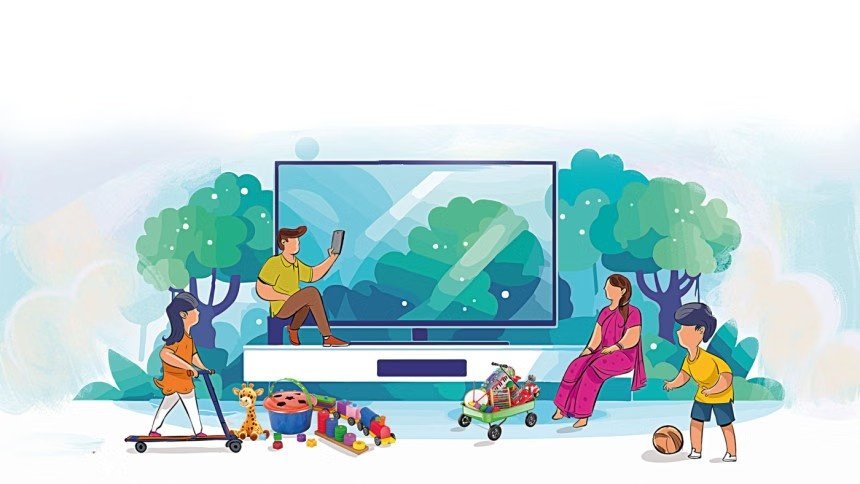Television in Bangladesh is undergoing a fundamental shift, moving from passive consumption to AI-powered interactivity that personalizes viewing and transforms the device into a digital companion. Global leaders like Samsung, Hisense, and LG continue to dominate the market, while local brands such as Walton, Singer, and RANGS are making AI-driven features accessible to value-conscious buyers.
Beyond Connectivity: What Makes AI TVs Different
Unlike traditional smart TVs that simply provide internet access and apps, AI-enabled TVs learn user preferences, adjust picture and sound dynamically, and recommend content tailored to individual tastes. In Bangladesh, AI integration is beginning to influence buying decisions, especially among younger, urban consumers who prioritize advanced features like voice control and personalized recommendations.
Market Dynamics in Bangladesh
- Premium demand: Samsung leads the high-end market.
- Mass market competition: Walton, Singer, and RANGS are competing with more affordable AI-powered options.
- Consumer trends: Outside major cities, buyers still focus on screen size and price, while Dhaka and other urban centres show growing interest in AI features.
Singer’s Push for Local AI Adoption
Singer Bangladesh is one of the few players tailoring AI TV experiences to local needs. Its current lineup includes:
- AI-based 4K upscaling for sharper visuals.
- Voice-controlled navigation simplified for local users.
- Dynamic calibration that auto-adjusts contrast, brightness, and noise reduction.
Head of Product Farhan Azhar acknowledges challenges such as limited local AI expertise, inconsistent internet speeds, and the need for Bangla voice command integration, but emphasizes Singer’s commitment to affordability and expansion of predictive AI features.
Challenges and Opportunities
- Infrastructure constraints: Power supply and broadband stability can affect real-time AI performance.
- Localization: Adapting AI to Bangla voice and cultural preferences requires investment.
- Affordability gap: For many, AI remains a “good to have” rather than a necessity.
The Future of AI TVs in Bangladesh
Industry leaders agree that AI will soon become standard. Future TVs are expected to act as intelligent hubs of the home, integrating with smart devices, curating content across platforms, and offering localized, culturally relevant experiences.
For now, AI televisions in Bangladesh may still be considered a premium feature. But with rising internet penetration, a growing middle class, and local innovation, AI-powered TVs are on track to become the new normal within just a few years.















